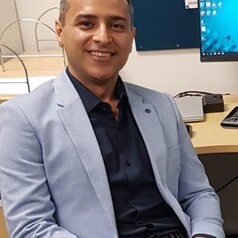
Jamal Abarashi
Lecturer, International Business, Strategy and Entrepreneurship Department, Auckland University of Technology
Dr. Jamal Abarashi is a lecturer at International Business Strategy and Entrepreneurship Department at AUT. His research examines cultural and sociological approaches to consumer behaviour and covers areas of consumer culture theory. His current projects explore areas such as ethical consumption, symbolic pollution, and sharing economy.
Less ![]()
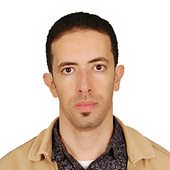
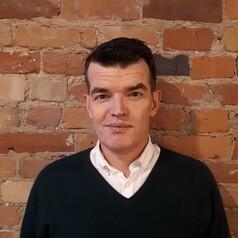
James Abbott
Assistant Professor, Department of Geography, Nipissing University
My interests have always concerned how the human and natural environments interact and shape each other. My doctoral research examined fisheries livelihoods in southern Africa, on a stretch of floodplain river shared by Botswana, Namibia and Zambia. I have taught at Temple University in Philadelphia and Nipissing University in North Bay.
Less ![]()

James Armitage
Associate Professor in Vision Science, Optometry Course Director, Deakin University
I am a practicing optometrist, active researcher and the Course Director of the Deakin Optometry program. I have enjoyed a diverse academic career due to the fact that my PhD studies allowed me to study a number of quite different topics including the electrophysiological function of the eye, the role of maternal diet and the controllers of fetal development.
I am regularly faced with trying to encourage my patients to take good care of their eyes in an environment where online shopping may result in them failing to understand the importance of taking care of eye health.
Less ![]()
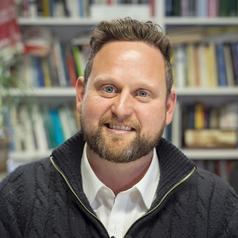
James Barry
Research Assistant, Anthropolgist, The University of Melbourne
James Barry, PhD, is an anthropologist specialising in ethnic and religious minority identities. He is the author of "Armenian Christians of Iran: Ethnicity, Religion and Identity in the Islamic Republic". He is currently working with Dr Simon Wilmot on a documentary film about Muslim Anzacs in the Second World War.
Less ![]()

James Beale
Senior Lecturer in Sport Psychology, University of East London
I am a Sport and Exercise Psychologist. I have been at the University of East London since 2002 where I hold the position of Senior Lecturer In Sport and Exercise Psychology and run the MSc In Applied Sport and Exercise Sciences.
I am a BPS chartered psychologist and a HCPC practitioner psychologist. I am also an associate fellow of the BPS.
I work extensively in elite sport including the English Premier League, First Class County Cricket, Olympic and Paralympic Sport, Elite League Speedway and Ballroom Dancing.
Less ![]()

James Boon
PhD candidate in Marine Ecology, University of Nottingham
James Boon is a PhD student at the University of Nottingham. He is interested in how refuges influence the ecology of coral reef fish communities and non-native species.
Less ![]()
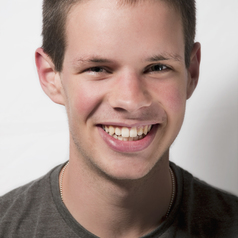
James Borrell
James is a PhD student at Queen Mary University of London. He is interested in conservation and population genetics with a focus on woody plants. His current research seeks to understand the decline of Dwarf Birch in the Scottish Highlands due to habitat fragmentation, climate change and population genetic processes.
James also has extensive field experience on biodiversity research expeditions around the world, from the deserts of Arabia, to the Amazon rainforests. He founded the social enterprise Discover Conservation, and is passionate about citizen science and public engagement. James also speaks regularly to a variety of audiences across the UK.
For more information, please visit www.jamesborrell.com
Less ![]()
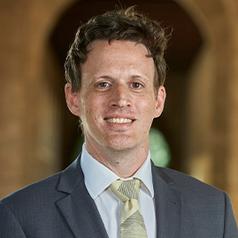
James Bowen
Policy Fellow, The University of Western Australia
James Bowen is a Policy Fellow at the Perth USAsia Centre. His work focuses on energy, climate, geoeconomics and broader processes of Indo-Pacific integration. James was a Non-Resident Research Fellow at the Centre from 2018 to 2020.
Less ![]()

James Brackley
Lecturer in Accounting, University of Sheffield
James Brackley is a Lecturer in Accounting, specialising in Financial Reporting, Audit and Public Sector Accounting. James' PhD project was on the transfer of Public Health to Local Authorities following the 2012 Health and Social Care Act. He is also an ICAEW Chartered Accountant, qualifying in the Public Sector practice of PwC.
His research interests include Science and Technology Studies based theorisations of how things are made valuable in public life via accounting representations in a range of empirical settings. These include the Audit industry, local government, healthcare and higher education.
James convenes the Critical Accounting Podcast, which you can follow on Twitter or subscribe to on YouTube.
Less ![]()
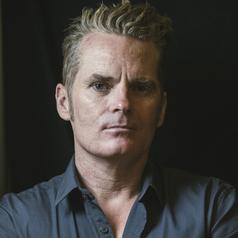
James Bradley
Honorary Associate, Sydney Environment Centre, The University of Sydney., University of Sydney
James Bradley is an author and critic. His books include the novels Wrack, The Deep Field, The Resurrectionist, Clade and Ghost Species, a book of poetry, Paper Nautilus, and The Penguin Book of the Ocean. In 2012 he won the Pascall Prize for Australia's Critic of the Year. His latest book is Deep Water: The World in the Ocean.
Less ![]()

James Brocklesby
Lecturer in History, Sheffield Hallam University
My expertise lies in the enduring legacies of European imperialism, with a particular focus on the British Overseas Territories. I explore the historical and geopolitical factors that explain why Britain continues to maintain control over these seemingly small and isolated 'dots on the map.' By examining their historical context, I aim to uncover the strategic, political, and cultural reasons behind their ongoing significance in global affairs
Less ![]()
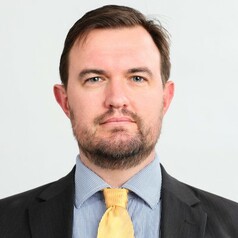
James Bushell
PhD Candidate and Research Associate, Institute of Transport and Logistics Studies, University of Sydney
Bachelor of Agricultural Economics (Hons 1)
Graduate Diploma Chartered Accounting
Chartered Accountant
Less ![]()



James Canton
Lecturer in Literature, University of Essex
I have written widely in creative non-fiction forms and taught on the MA in Wild Writing at the University of Essex since its inception in 2009. I have run many workshops to encourage writing on nature and landscape, and worked on Radio 4 detailing the writing and landscapes of Essex such as for ‘Something Understood’ on John Clare and Epping Forest (August 2014) and ‘Open Country’ on Tollesbury Wick and literary Essex (November 2015).
My books include Out of Essex: Re-Imagining a Literary Landscape (2013) which was inspired by rural wanderings in the county and Ancient Wonderings: Journeys into Prehistoric Britain (2017) that tells some remarkable tales of life in ancient Britain. The Oak Papers (2020) – Radio 4’s Book of the Week – explores some of the ties between humans and oaks since prehistory, meditating on our need to connect with the natural world. My latest book, Grounded (Canongate, 2023) tells of rediscovering the most sacred spaces in our landscapes – both natural sites and human places – seeing the lessons we can learn from our ancestors and their relationship with the land. My forthcoming book, Renaturing (due out March 2025) investigates ways of democratising rewilding, how we can all be involved in nature restoration.
Less ![]()
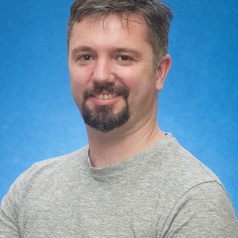
James Carney
Senior Research Associate (Psychology), Lancaster University
At the broadest level, my research is concerned with the cognitive and cultural factors that inform how human beings think about, create and communicate representations. In this regard, it cuts across both the humanities and the social sciences. Methodologically, I am very interested in how quantitative and experimental methods can be applied to qualitative cultural and linguistic data (and particularly to 'big' data). To date, I have published on a wide variety of subjects, including experimental psychology, literary studies, anthropology, cultural studies, mythology, social media and linguistics.
I have graduate degrees in discourse linguistics, literary studies and philosophy; I have also held competitively awarded fellowships in the form of a Junior Research Fellowship (Linacre College, Oxford) and a Marie Curie Fellowship (Department of Experimental Psychology, Oxford).
Less ![]()
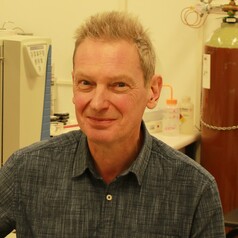
James Carter
Adjunct Research Fellow, Griffith University
Stable isotope chemist with an interest in food and forensics.
Less ![]()
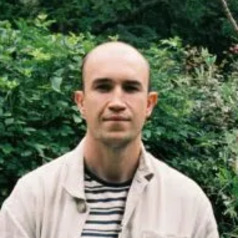
James Clark
Research Associate, School of Biological Sciences, University of Bristol
I am a Research Associate in the School of Biological Sciences at the University of Bristol.
Land plants (embryophytes) have undergone a series of whole genome duplication (palaeopolyploidy) events throughout their evolution, sparking a series of hypotheses relating major innovations and diversification to genome duplication. The purpose of my research is to explore the placement and timing of these duplications across the plant phylogeny and to test any causal hypotheses relating to the evolution of plant complexity.
Less ![]()
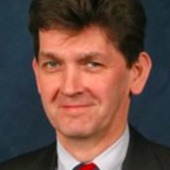
James Conroy
Professor of Religious and Philosophical Education and Vice Principal, Internationalisation, University of Glasgow
Less ![]()

James Davison
PhD Candidate in Medieval History, University of Liverpool
James is a PhD candidate at the University of Liverpool, where he received an MA in Medieval and Renaissance Studies following a BA in History from the University of Newcastle. He is also an Associate Fellow of the Higher Education Academy.
James' PhD research approaches burials from the early Anglo-Saxon period with the perspective that transness is not a modern phenomenon, but a physical and emotional state that can be recognised in a variety of historical cultures.
James' teaching has focused on the Viking Age in the British Isles. His outreach work has included talks on the relevance of trans history in our modern world to a variety of audiences from the WI to secondary school and undergraduate students.
Less ![]()
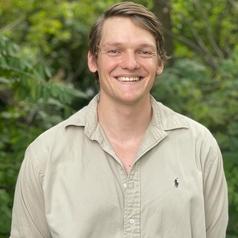
James Dowling
PhD Student, Evolution, Ecology, and Organismal Biology, The Ohio State University
Less ![]()
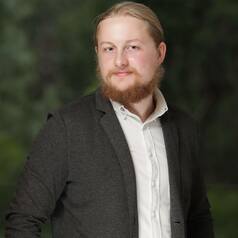
James Durl
Research Fellow, Griffith University
I'm a research fellow at Griffith University, as part of the Blurred Minds AOD prevention program. My current focusses are the Vaping epidemic, and behaviour change through Virtual Reality, Gamification and Social Marketing best practices.
Less ![]()

James Edwards
Associate Professor of the Oxford Skeletal Ageing and Regeneration Group, University of Oxford
James Edwards leads the Skeletal Ageing and Regeneration research group at the University of Oxford. This work is focused upon revealing causes of ageing-related skeletal decline and exploring novel approaches to better treat the consequences of musculoskeletal ageing.
Prof Edwards graduated from Wadham College, University of Oxford with a D.Phil (Ph.D.) from the Medical Sciences Division, Nuffield Dept. of Orthopaedics, Rheumatology and Musculoskeletal Sciences after completing research work studying bone tumour pathology and TNF-family ligands in the bone remodelling process. This was followed by cellular, molecular and pre-clinical research at the University of Texas Health Science Centre at San Antonio, and later as part of the founding research team at the Vanderbilt Centre for Bone Biology. During this time Prof Edwards developed a strong research theme investigating links between ageing and longevity mechanisms and the onset of musculoskeletal disease, with work recognised with ASBMR, ECTS and IBMS awards. This ongoing work forms the basis of the Oxford Skeletal Ageing and Regeneration group, which aims to understand the causes of age-related skeletal decline and better address the consequences of such disorders. In recent years, this has included the study of sirtuin biology in musculoskeletal tissues and how the acetylation status of key intracellular proteins fine tunes normal cell biology and function with increasing age, how the cellular recycling process of autophagy declines in ageing cartilage and can be activated to protect against arthritis disease, and how novel degradable alloys can improve fracture healing and bone repair.
The Oxford Musculoskeletal Ageing group has been funded by awards from Arthritis Research UK, Medical Research Council, Wellcome Trust, Orthopaedic Research UK, NC3Rs and through industry collaborations.
Less ![]()
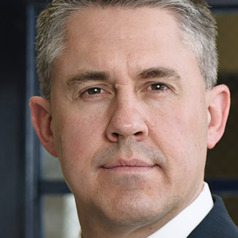
James Forest
Professor and Director of Security Studies, School of Criminology and Justice Studies, UMass Lowell
James J.F. Forest, Ph.D., is a professor in the School of Criminology and Justice Studies, where he teaches undergraduate, master's and doctoral degree courses on contemporary security studies, terrorism and counterterrorism, homeland security, weapons of mass destruction, and other related topics. He is the director of the Security Studies program and is the Editor-in-Chief of the peer-reviewed scholarly journal Perspectives on Terrorism. He has previously served as a Senior Fellow for the U.S. Joint Special Operations University (2010-2019) and as a faculty member of the United States Military Academy (2001-2010), six of those years as Director of Terrorism Studies (in the Combating Terrorism Center at West Point) and three years as Assistant Dean for Academic Assessment. He has served as an expert witness for terrorism-related court cases, and has provided testimony and briefings to the intelligence community and committee hearings of the U.S. Senate.
Less ![]()
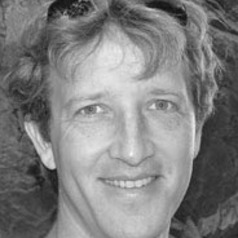
James Foster
Research interests include the application of geodesy to the mitigation of natural hazards, volcanic, tectonic, oceanographic and meteorological processes, and the impact and mitigation of the atmosphere on space geodetic measurements.
Less ![]()
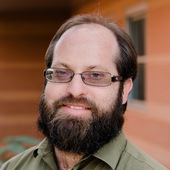
James Foulds
Associate Professor of Information Systems, University of Maryland, Baltimore County
Less ![]()

James Francis, Jr.
Instructional Associate Professor, Texas A&M University
Dr. Francis received his BA and MA in creative writing from Texas A&M University. He studied children’s literature and film at MTSU where he attained his PhD, now specializing in film (horror studies), children’s literature, and creative writing. He is the author of Remaking Horror: Hollywood’s New Reliance on Scares of Old, which chronicles the contemporary film industry phenomenon of horror-movie remakes. He has published book chapters in Dexter: Investigating Cutting Edge Television and TV Goes to Hell: An Unofficial Road Map of Supernatural as part of his background in television and media studies; The Scientist in Popular Culture: Playing God and Working Wonders and Bloody Women: Women Directors of Horror regarding his specialty in Horror Studies; and The Tennessee Williams Annual Review connected to his interest in Queer Studies. He is the editor for Images in Motion: Exploring Visual Storytelling and served as contributing author and editor to Howdy or Hello?: Technical and Professional Communication; Surface and Subtext: Literature, Research, Writing; and Marvels and Wonders: Reading, Researching, and Writing about Science Fiction and Fantasy, all open-educational resource textbooks created by TAMU English Department committees in order to provide free-access educational resources to the instructor and student populations to enhance teaching and learning practices and increase academic equity. Dr. Francis is also an internationally-published portrait, fashion, and art photographer. As an Instructional Associate Professor at TAMU, he is currently researching and co-authoring two genre-studies monographs on horror musicals and A.I. in science-fiction film with former students of the TAMU English Department.
Less ![]()

James Goodwin
Professor in the Physiology of Ageing, Loughborough University
Professor James Goodwin is the Director of Science and Research Impact at the Brain Health Network in London.
Dr Goodwin graduated with a bachelor’s degree in Biology from Keele University, UK. After graduation he became a short service commissioned officer in the British Army, then afterwards spent 20 years in the Army Reserve. He was a member of the Army Reserve international shooting team and won Gold, Silver and Bronze medals at national (UK) competitions. He is a graduate of Winterbourne Gunner, the Army's Defence NBC School, the School of Infantry PCBC, and the Company Commanders and Staff Course. On leaving the regular Army, he studied for a master’s in Human Biology at Loughborough and then for a PhD in Medical Science (Physiology) in Professor Sir John Tooke’s department at the University of Exeter Medical School. His area of research was the physiological effects of extreme temperatures, ageing and health. He was appointed Head of Research at the Help the Aged in 2002, Director of Research at Age UK in 2009 and then Chief Scientist until September 2018. In 2015 on the request of Lord Filkin, he was seconded to the Centre for Better Ageing.
Dr Goodwin has been a member of numerous expert bodies, including a UK Ministerial Advisory Group on Dementia Research, the UN Research Agenda for Ageing panel, a UN Digital Health Group, a WHO Advisory Group, the EC funded FUTURAGE project and in 2022 was a jury member for the French Government ANR Research Department. He presented evidence to the House of Lords Inquiry on the Scientific Aspects of Ageing (Select Committee on Science and Technology) in 2005 and 2009, and to a US Congressional hearing in 2006. In March 2014 Dr Goodwin was elected as a Fellow of the Academy of Social Sciences (FAcSS) for his contribution to the impact of research on important social issues affecting older people.
Less ![]()
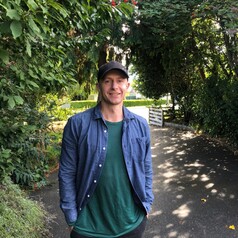
James Greenslade-Yeats
Research Fellow in Management, Auckland University of Technology
Most of my current work focusses on workforce sustainability issues in healthcare professions. I am interested in using theories and concepts from organisational behaviour, social psychology, employment relations and other disciplines to understand how healthcare systems can be redesigned for the benefit of workers and patients.
Less ![]()

James Hall
Lecturer, Media & Cultural Studies, Edith Cowan University
Lecturer with over 20 years experience teaching in the fields of Media & Cultural Studies and Public Relations. Also previously the Chair of Board of Directors and presenter at Perth community radio station RTRFM.
Less ![]()

James Harris
Candidat au doctorat au Département des sciences de la Terre et de l'atmosphère, Université du Québec à Montréal (UQAM)
Candidat au doctorat (PhD) à l’Université du Québec à Montréal (UQAM).
Membre du :
- Geotop (centre de recherche sur la dynamique du système Terre – www.geotop.ca)
- GRIL (Groupe de recherche interuniversitaire en limnologie – www.gril-limnologie.ca).
Ma thèse, entreprise au sein de l’équipe de recherche de Marie Larocque, titulaire de la Chaire de recherche Eau et conservation du territoire, se focalise sur les échanges lac-eaux souterraines, notamment sous l’influence des changements climatiques.
Less ![]()

James Helal
Assistant Dean (Sustainability), The University of Melbourne
Dr. James Helal specializes in life cycle assessment, computational design, and structural optimization of buildings. As Assistant Dean (Sustainability) of the Faculty of Architecture, Building and Planning at the University of Melbourne, he is committed to enhancing and realizing the strategic direction and sustainability agenda for the faculty. This involves embedding sustainability into research, teaching, learning, culture, and organizational life.
Dr. Helal's research centres on the development of innovative software tools and computer models that integrate embodied carbon assessment into the early-stage structural design of tall buildings. His work has been acknowledged internationally by the Institution of Structural Engineers, receiving the Structures Best Research into Practice prize.
As a Lecturer in Sustainable Structural Design, he teaches in the areas of materials, structures, and life cycle assessment of the built environment. His dedication to teaching excellence has been widely celebrated, with awards including the Open Award for Excellence in Teaching from the Faculty of Architecture, Building and Planning, and the esteemed Edward Brown Award for Teaching Excellence from the University of Melbourne.
Through his leadership, research, and teaching, Dr. James Helal contributes significantly to the ongoing development of sustainable design practices in the built environment.
Less ![]()
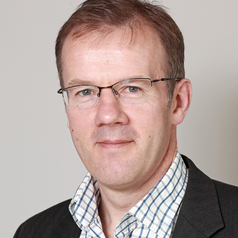
James Henderson
James Henderson has been analysing the Russian oil and gas industry for the past 20 years. Having been Head of Energy for Wood Mackenzie Consultants in the mid-1990s he moved to Moscow as Head of Oil & Gas Research for Renaissance Capital in 1997, and in 1999 became Head of Equity Research. Having returned to the UK in 2002 he became Head of Russia at Lambert Energy Advisory while also studying for his doctoral thesis on partnership in the Russian oil and gas industry at the University of London, which he completed in 2010. He then became a Senior Research Fellow at OIES contributing to the work of the Gas and Oil programmes, mainly covering Russia and the CIS but also contributing research on various global gas issues. His recent publications include analysis of potential North American gas exports and changes in the domestic Russian gas market, while research in progress includes a working paper on Australian LNG prospects and a book on the Russian Gas Matrix (edited with Simon Pirani) to be published by OIES in 2014.
Less ![]()

- Market Data





















